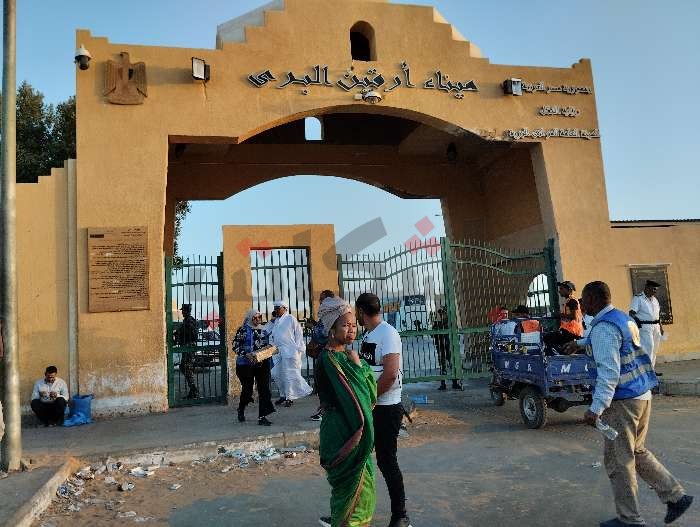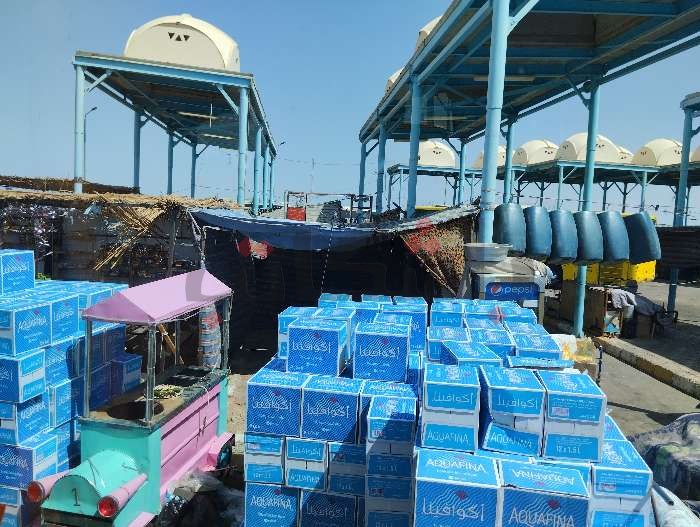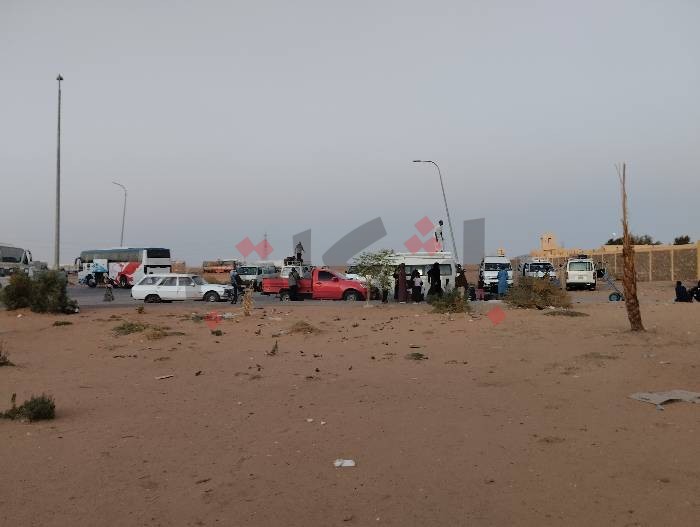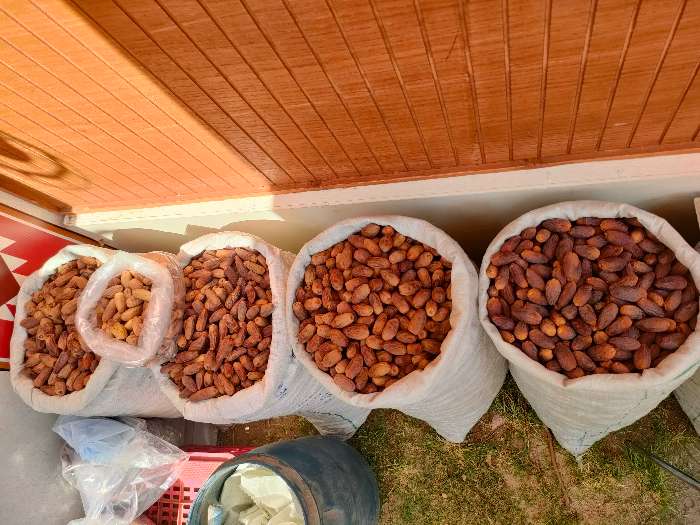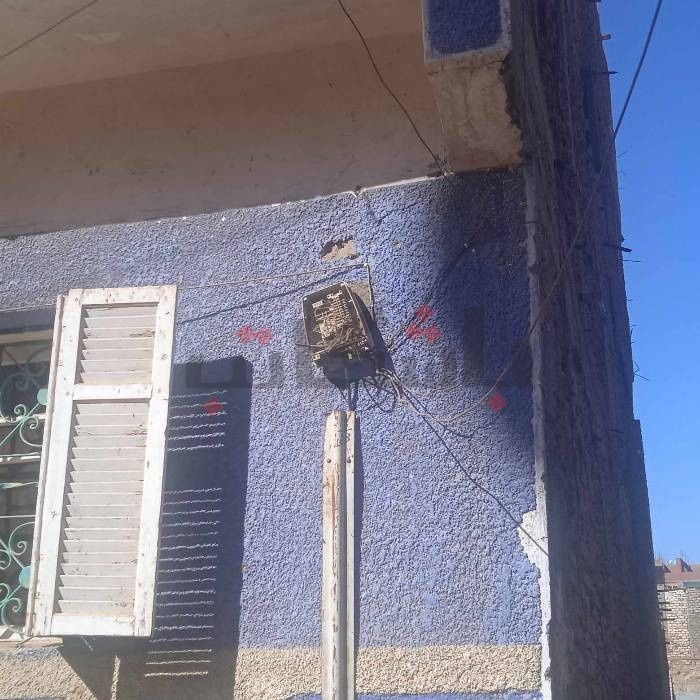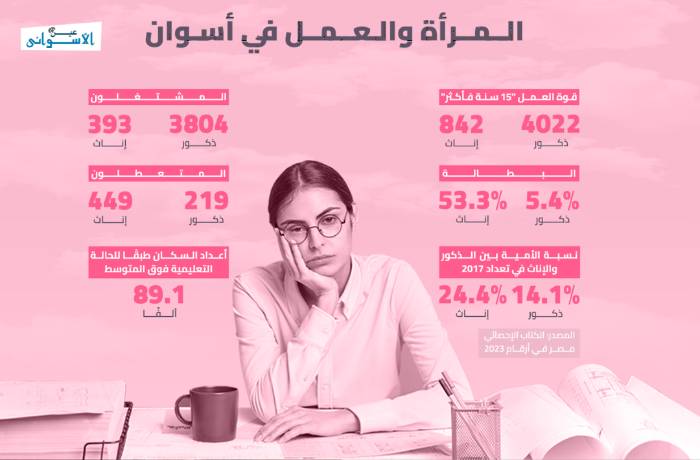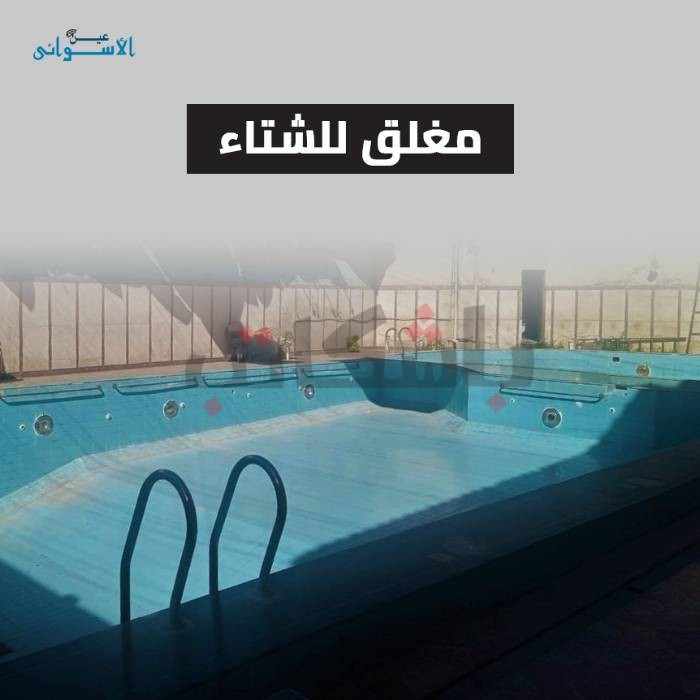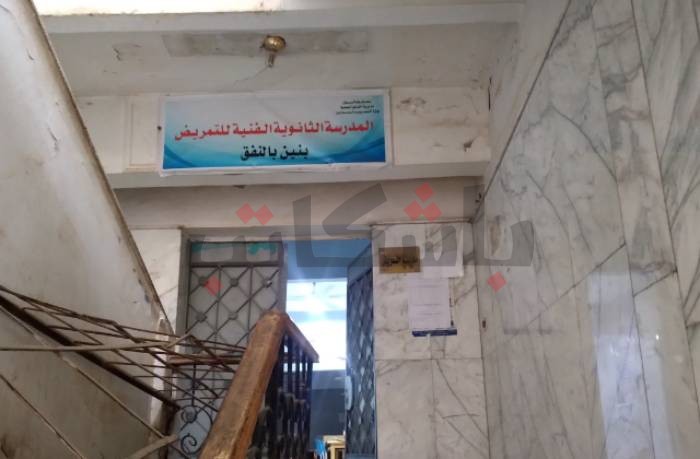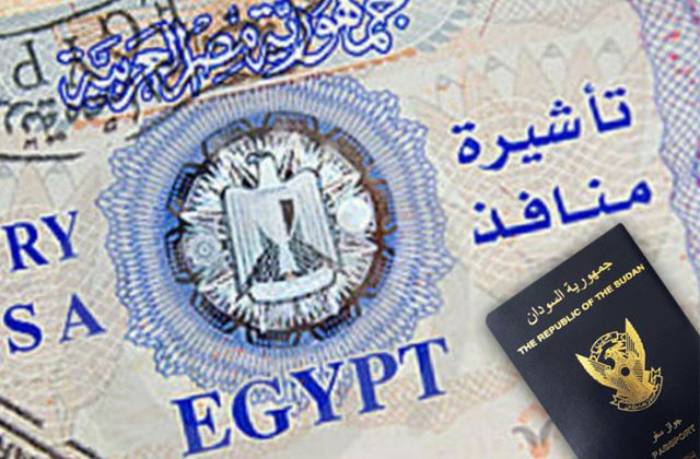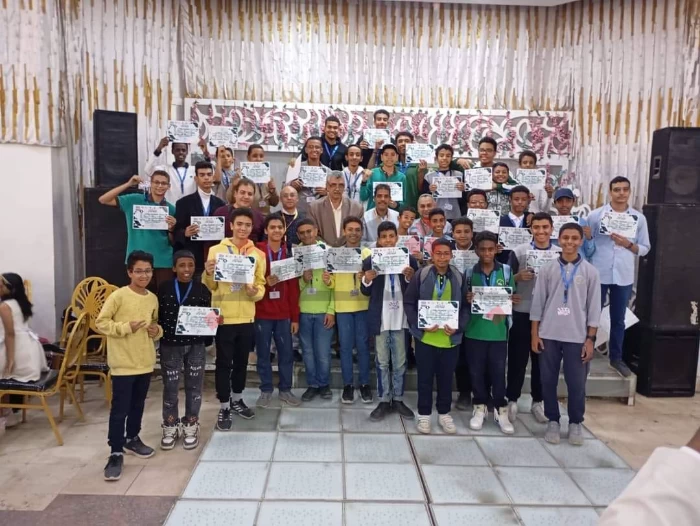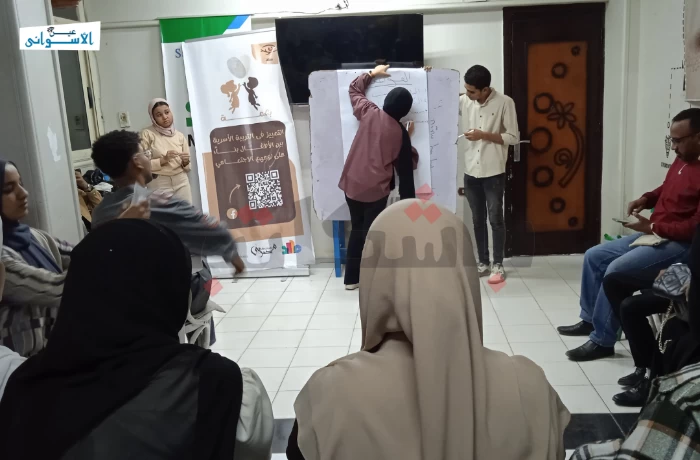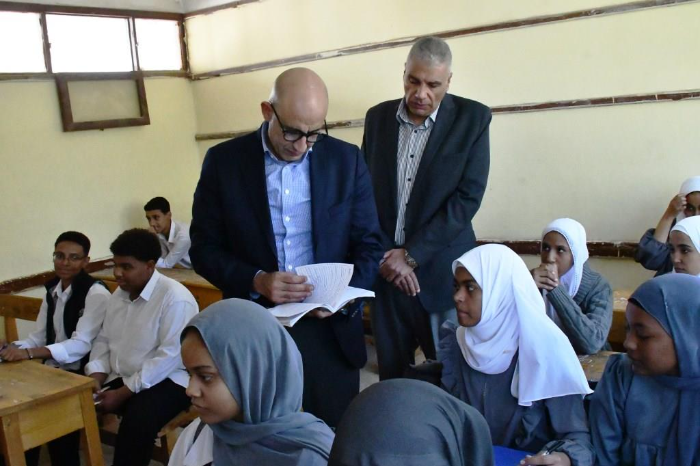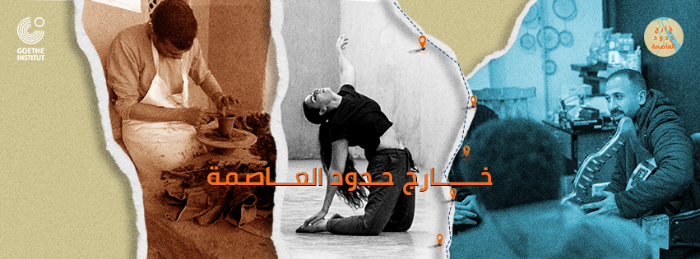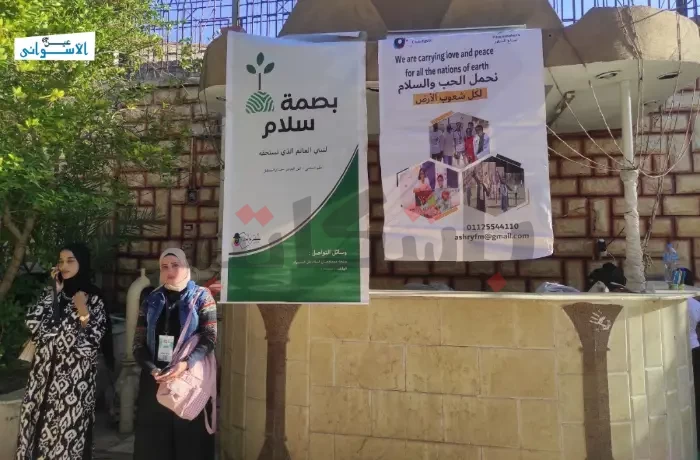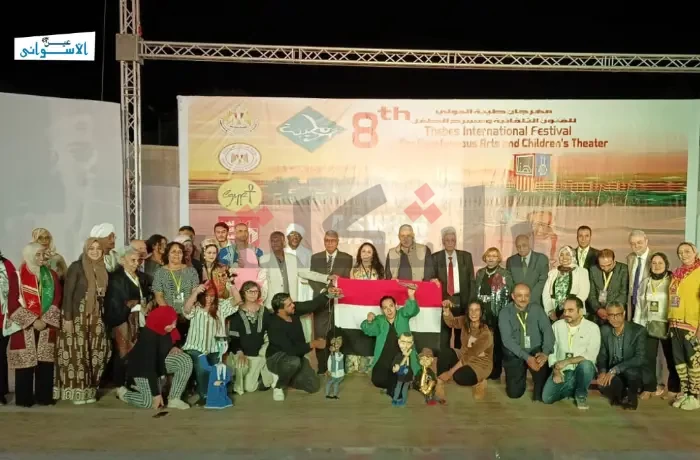"In a bus filled with volunteers, we headed to the Arqeen crossing, one of the land border crossings between Egypt and Sudan, carrying a quantity of food aid such as:" "Juices and water" to be distributed to those crossing the border, whether Sudanese, who constitute the majority, or Egyptians returning from there, all of whom share in escaping the conflicts currently taking place in Sudan.
The distance from Aswan to the border crossing takes about 4 hours by bus, on a relatively uncongested road compared to the opposite direction heading from the crossing to Aswan itself or to other Egyptian governorates. The number of buses on this route has increased since the start of the conflicts to accommodate the rising numbers of people crossing into Egypt. Some buses operate under community initiatives, providing free transportation, while the majority charge a special fare.
This was my first visit to the border crossing, located in the midst of a completely desert area. The crossing itself consists of two travel halls, a square for trucks, cars, and buses, as well as another route for camels and livestock. Its normal capacity is approximately 2,000 travelers and 300 trucks, covering an area of 13,000 square meters. Upon setting foot there, the first thing that catches your attention is the intense congestion, attributed to the prolonged entry procedures and the large number of incoming people.
There, the teams of the Egyptian Red Crescent play a crucial role in providing medical and food assistance to arrivals, along with ambulance services that ensure rapid intervention, especially in terms of medical needs. This applies to those who already require medical assistance and those affected due to the long waiting hours and extended travel periods. Some testimonies from arrivals indicate that they spend at least two days at the crossing. One individual informed me that his friends have been there for four days, and their procedures have not been completed yet, especially considering the high numerical congestion.
The instructions dictate that the bus journey coming from Sudan concludes at the Karkar station, which is approximately 3 hours away from the port. Passengers disembark there, and the bus returns to Sudan. Meanwhile, the passengers begin their second leg of the journey, heading either to Aswan, other governorates, or the villages near the station that has opened its doors for those who wish to stay, especially for those who cannot afford transportation or alternative accommodations.
Those fleeing the conflicts usually coordinate with buses to transport them from Sudan through the border crossing to reach the Karkar station, where essential transportation means are available. However, we encountered a group of families that arrived at the border either on foot or using transportation that stopped at the crossing from the Sudanese side.
A very limited number of buses were present at the border to transport these people for free. The bus I was on carried several families back to Aswan, with the understanding that they would decide on their next stop later. Despite our attempts to engage in conversation with them, we felt that they preferred silence. Our silence, too, was a sign of respect for their wishes. This was the general state for most arriving families, showing signs of fatigue and sadness, though there was a noticeable decrease in anxiety and tension in exchange for a sense of safety.
Despite the current situation focusing on moving from the border to various Egyptian governorates, you also find at the Egyptian side of the border those who want to enter Sudan, even if their numbers are much smaller compared to those arriving. On the bus with us, there was a young woman who told me that she is coming from the UAE, where she works. She is heading to Sudan to check on her family and provide for the cost of their relocation abroad. She told me that she will try to come back here again and hopes that it will be successful despite all the risks and difficulties she hears about in reaching the border crossing.
The presence of aid, even if it is simple and focuses on water and ready-made food items, is primarily important due to the high prices. This applies both to the selling points within the border crossing, which rely on tourist prices, and to the outlets scattered along the desert road from the crossing to Karkar or Aswan, which also use tourist prices.
Our bus settled as we were returning to Aswan. The families with us mentioned that they have relatives who will help them settle here, while other buses headed towards Cairo.
There is no officially announced number for the arrivals to Egypt through the "Arqeen" border crossing so far. The latest statement from the Land Ports Authority indicated that the numbers until April 25th reached 8,897 from various nationalities. Meanwhile, the Egyptian Ministry of Foreign Affairs announced yesterday that the number of Egyptian students alone who have arrived in Egypt reached 6,960 citizens.
